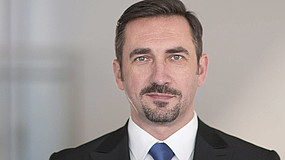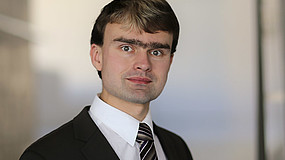Source: Carla Schmidt Photography
In the Technical Thermodynamics laboratory, practical experiments are carried out in small groups. Students learn how to balance energy flows and avoid losses, how to transfer heat efficiently to a gas or from one substance to another, how air conditioning systems work, how to investigate the state behavior of substances or what happens in a heat pump.
In the Technical Thermodynamics laboratory, the knowledge acquired in the lectures and deepened in calculation exercises is applied in practice. In the experiments, directly measurable variables such as temperatures, pressures, volume flows and other important parameters are determined using modern sensor technology. Using the thermodynamic laws learned, variables that cannot be measured directly, such as heat or other energy flows, can then be calculated.
The practical experiments take place in addition to the lectures and exercises of the respective semester. In the undergraduate courses in Energy and Environmental Engineering, Green Engineering and Mechanical Engineering, students carry out experiments on energy flow balancing, heat transfer or air conditioning of humid air. In the advanced or master's degree course, further aspects are then investigated in practice, such as the operating behavior of a heat pump or the state behavior of real materials.
To prepare for the internship, there is a clear internship guide. The knowledge required from the lectures and the instructions is tested in a short introductory colloquium, and the results are then discussed. The students then carry out the respective experiment on their own responsibility as described, make the specified settings on the test stands under the guidance of the laboratory engineer and document the measurement results. On this basis, the students in the practical group then draw up a protocol together at home.
The heat pump test stand was installed in autumn 2023 and can be used to simulate the operating behavior of a compression heat pump. Heat pumps as key components of a future climate-neutral building heating system are now an important part of the Energy and Environmental Technology complex practical course in the specialization of the bachelor's and diploma courses of the same name.
Students can find the times for the laboratory practicals in their timetables and register independently in the desired practical group on the OPAL learning platform.
House Z VII, Rooms 50/51

